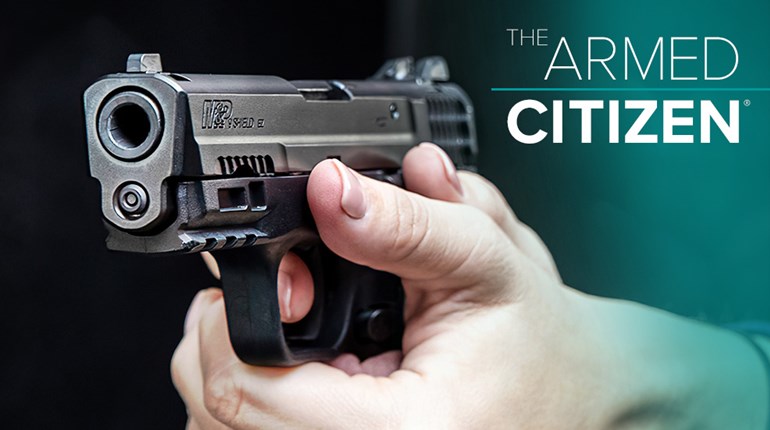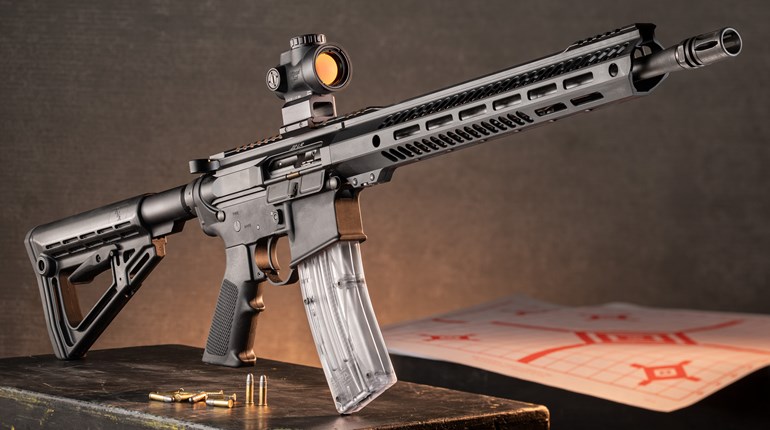
“Myself, as a public health person, I think you can’t run away from that,” Dr. Anthony Fauci, now President Joe Biden’s chief medical advisor, recently said on CNN. “When you see people getting killed—in this last month it’s just been horrifying what’s happened—how can you say that’s not a public health issue?"
Of course, Fauci was echoing his boss, President Biden (D), who has made similar statements. Biden most recently did so on April 6 while announcing a number of executive orders on guns.
“Today we’re taking steps to confront not just the gun crisis, but what is actually a public health crisis,” said Biden.
So why all the “public health” talk, and why should you even care? For one thing, it’s beneficial for those on the anti-gun side to frame criminal violence as a public health crisis in order to get support for restrictive gun-control legislation from those who don’t feel strongly about this issue. In worrying about health issues, people tend to not worry so much about freedom—as we have seen in this COVID-19 era.
As reported previously at A1F.com, “The idea is to turn a matter of elementary liberty into a crisis that mandates instant action.”
Of course, what kind of monster doesn’t want to swiftly and effectively deal with a public-health issue? Say it’s not a health issue in public, and you’re framed as evil and part of the “problem.” Have you no compassion?
But there’s an endgame in mind, and it just might not be that far off. Politicians opposed to Second Amendment rights first declare that the criminal use of firearms is a public-health issue, and they say it requires a response determined by health professionals and researchers. Next, they set up a series of studies that will result in health professionals and researchers concluding that the only way to fix the public-health issue is to ban firearms. Finally, they pretend that they are surprised by the recommendations made by the health professionals and researchers, but that they are obliged to follow them on the grounds that they are merely “going where the data leads.”
This misuse of the phrase “public-health issue” goes hand in hand with another commonly misused term by those on the anti-Second Amendment side of the equation: “gun violence.” Just Google it and you instantly get 274 million results, as if guns have minds of their own!
Guns, as we all know, are simply tools that can be used for good or misused for evil, just like nearly any other tool. We all know that a gun can be dangerous in the hands of an evil person. And we all know that a gun can be used for good against such an evil person by a law-abiding citizen—this happens innumerable times every day, with some estimates as high as 2.5 million times each year.
Still, enemies of freedom use both terms—“gun violence” and “public-health crisis”—as an excuse to chip away at our Second Amendment freedoms a little at a time. This spring, several measures introduced in the U.S. Congress would outlaw private sales of firearms, ban semi-automatic rifles and normal-capacity magazines, and even require gun owners to purchase expensive liability insurance from the government.
One problem with that approach is that none of the solutions to “gun violence” and the “public-health issue” proposed in a number of different measures currently before Congress would make any noticeable difference in murders or other violent crimes if passed and signed into law. We’ve talked many times about how so-called “assault-weapon” bans, magazine-capacity limits, “universal” background checks, closing various nonexistent “loopholes,” and passing red-flag laws won’t stop violent criminals, but will only infringe on the rights of the law-abiding.
However, the real problem with the public-health approach by anti-gunners is that it ignores the very sanctity of the basic liberties enumerated in the U.S. Bill of Rights. President Biden recently said, “No amendment, no amendment to the Constitution is absolute.”
What Biden was insinuating is that his anti-gun wish list doesn’t run afoul of the U.S. Constitution; however, there is nothing in the U.S. Bill of Rights or elsewhere in the U.S. Constitution that says the rights enumerated therein can be changed on a whim because a president imagines guns are a disease.


































